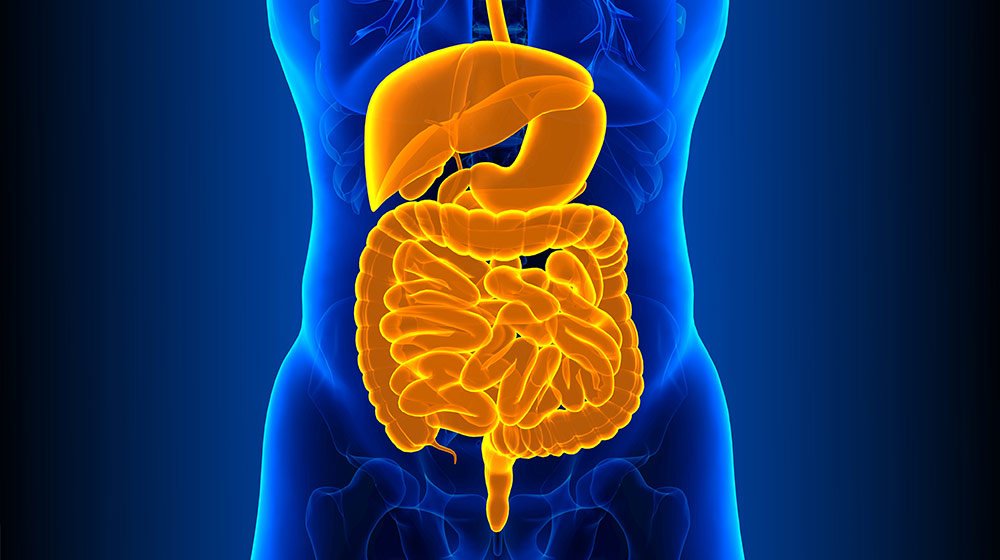Overview
In medicine, the role of the gut in maintaining human health has long been emphasized. Even thousands of years ago, Hippocrates, one of the most phenomenal figures in the history of medicine around the 4th century BCE, is credited with saying that “Bad digestion is the root of all evil” and that “All disease begins in the gut.”
Indeed, the gut is an “ecosystem” of 100 trillion bacteria, both good and bad, and contributes to our overall health. But this “gatekeeper” of the entire microbiota sometimes does not hold all the living things together and instead allows them to pass through the gut lining, causing a phenomenon called “intestinal permeability,” also known as “leaky gut.”
This article provides comprehensive information about the role of intestinal permeability in human health and how we can maintain overall well-being, starting with the gut.
RELATED: 5 Best Anti-aging Foods for Gut Health
Intestinal Permeability: A Vital Health Determiner Beyond the Gut
What Is Intestinal Permeability?
The gut inside our abdomen consists of an extensive intestinal lining (or gut lining) that, if we lay it flat out on a surface, can be as big as a tennis court. This semi-permeable lining is crucial in allowing nutrients from digested food to be absorbed into the circulatory system.
However, the intestinal lining can sometimes be “out of whack” due to multiple factors, causing the absorption barrier held together by the tight junctions to be enlarged. This unhealthy state of the gut lining is called “increased intestinal permeability” or “leaky gut syndrome,” allowing unwanted substances, like toxins and bacteria, to penetrate.
Remember that the gut lining is not completely impermeable and functions by allowing the beneficial substances to pass through. Instead, it is the increased intestinal permeability that is harmful to the gut and all the organs surrounding it.
Of course, our bodies do not allow harmful infiltration from inside the gut to the outside environment, as the immune system sees these toxins as “foreign pathogens.” The body will then trigger inflammatory reactions and changes in the gut to get rid of the problem within the digestive tract and beyond.
Why Is Increased Intestinal Permeability Detrimental?
One thing for sure is that any change within the microbiota is not beneficial, if not even harmful. It is because we need to maintain a balance between the good and bad bacteria to preserve a state where every component is stable, known as homeostasis.
Meanwhile, inflammation is a normal response of our bodies to pathogenic microorganisms. However, if inflammation persists due to constant, unresolved leakage of the gut lining, the risk of chronic diseases arises, causing many gut- and non-gut-related conditions.
Increased Intestinal Permeability Causes Gut-related Disorders
Some individuals are predisposed to intestinal permeability due to genetic and environmental factors. Upon exposure to specific triggers, like a bad diet or lifestyle, this predisposition may result in inflammatory bowel diseases (IBD), including:
- Crohn’s disease (swelling of the tissues in the digestive tract)
- Ulcerative colitis (ulcers or sores in the digestive tract)
- Celiac disease (intestinal atrophy and reduced nutrient absorption)
Increased Intestinal Permeability Promotes Chronic Disease Risk
Increased intestinal permeability also raises a person’s risk for chronic diseases due to a cascade of events related to the loss of gut barrier function and persistent immune activation on a whole-body level. These chronic disorders include:
- Atherosclerosis (damage to the artery’s wall): Elevated LDL cholesterol levels, or the “bad” cholesterol, are directly linked to a higher risk for atherosclerotic cardiovascular events. This LDL cholesterol can bind to a bacterial endotoxin in the intestine called lipopolysaccharide (LPS). Both eventually penetrate the circulation and insert themselves into arterial walls, triggering the onset of atherosclerosis.
- Neurodegeneration (loss of neuronal structure or function): The gut has intricate communication with the central nervous system called the gut-brain axis (GBA). The exact culprit above, the LPS, can bind to the cells in the brain, causing blood-brain barrier breakdown and neuroinflammation. This loss of blood-brain barrier function is common during aging and early cognitive dysfunction.
What Causes Increased Intestinal Permeability?
Endogenous Factors

Any gut microbiota imbalance may cause disturbance in the tight junctions, promoting intestinal permeability. One of the causes of such anomalies is stress, which can be psychological, emotional, and physical.
According to research, stress, and sometimes even depression, can promote inflammation in the gastrointestinal tract, which is the trigger that eventually causes increased intestinal permeability. For example, an unhappy marriage is a constant source of stress. In comparison to happier couples, most hostile couples are found to have worse intestinal permeability. This condition may occur due to an elevation of cortisol levels.
Psychological and emotional stress may also drive individuals into unhealthy food choices and binge eating behaviors. As mentioned above, stress elevates cortisol levels, a stress hormone. Cortisol increases appetite and the motivation to consume food in excess. Unfortunately, this increased craving tends to cause us to prefer unhealthy foods like those high in fat and sugar or are inflammatory and obesogenic.
Physical stress is another factor that induces gut damage. Research shows that gastrointestinal issues are prevalent in athletes. Not all types of exercise, though, might disturb the gut. For example, the study shows that vigorous endurance training for 60 minutes at 70% of one’s total capacity may lead to the characteristic responses of intestinal permeability. Meanwhile, moderate exercise is safe and even beneficial for gut health.
Exogenous Factors
- Excess alcohol consumption, cigarette smoking, and other toxic products
- Dietary patterns that are high in fat and sugar or are inflammatory and obesogenic
- Gluten or dairy products if the person is predisposed to intestinal permeability
- Abuse of certain medications, such as antibiotics or NSAIDs
- Gut infection caused by SIBO (small intestinal bacterial overgrowth) or parasites
Dietary Components That Can Improve Intestinal Permeability
Dietary Fiber
So, how to improve intestinal permeability? Dietary fiber is known to be a nutrient that protects the intestinal barrier and helps keep the microbiota in a healthy state.
During digestion, the bacteria in the gut are engaged in consuming carbohydrates derived from dietary fiber. This type of consumable fiber, also known as fermentable or soluble fiber, is then processed into short-chain fatty acids (SCFAs).
The SCFAs, of which butyrate is one of the most abundant types, are beneficial factors for maintaining gut health by providing energy for the cells in the gut lining, which contributes to its integrity. According to research, the SCFAs can suppress barrier dysfunction, diminish intestinal inflammation, and promote intestinal integrity.

Omega-3s
Omega-3 fatty acids, a type of nutrient that plays a beneficial role in the body, can positively influence the inflammatory state of various cell types, including those in the gut lining.
These marine-derived, healthy fats can prevent detrimental changes in the gut, inhibit proinflammatory factors, and promote the production of anti-inflammatory molecules, improving intestinal permeability’s inflammation-related outcomes.
Research shows that omega-3 fatty acids, specifically EPA and DHA, can improve gut barrier integrity and reduce permeability induced by multiple proinflammatory factors. Notably, EPA and DHA can even prevent intestinal permeability by preventing the redistribution of the tight junctions. These proteins that hold the gut lining cells together.
Polyphenols
Polyphenols are the micronutrients found in various fruits and vegetables. For example, curcumin is a specific polyphenol in the spice turmeric as the active ingredient.
Polyphenols positively affect the gut microbiota, boost immunity and metabolism, and produce anti-inflammatory effects. These benefits may result from polyphenols’ ability to maintain gut bacterial populations that process dietary fiber into butyrate.
According to research, polyphenols can reduce the release of several proinflammatory factors and regulate multiple vital genes involved in the inflammatory process. In addition, polyphenols can also regulate intestinal permeability through several direct and indirect effects, including their influence on the immune system and intestinal environment.
Probiotics
Probiotics are beneficial bacteria that provide positive effects on health. One of the best sources of probiotics is yogurt, a dairy product fermented by lactic acid bacteria.
Probiotics can aid in gut integrity by maintaining a healthy community of microorganisms in the body or assisting those disturbed to return to a healthy state. Probiotics can also enhance the immune system’s performance.
According to research, probiotics can improve the gut microbiota and reduce permeability by increasing mucus production, a lubricant layer on the inside of the gut lining, and increasing tight junction integrity. Moreover, probiotics can improve the levels of SCFAs and the gut barrier function by up to 48%.
RELATED: Can You Fix Leaky Gut With Diet and Supplements?
Recent Findings in Intestinal Permeability
Intestinal Permeability Is a New Target for Disease Prevention
Although research on the modulation of intestinal permeability is in its infancy, multiple promising interventional methods have been proposed in addition to diets to not only treat the gastrointestinal condition but also prevent it from occurring.
According to a study, these preventive and therapeutic agents, known as “functional foods,” can be used as healthy nutrition in the general population and as medical interventions. What is required now is the scientific evaluation of these substances before more significant efforts to develop this new category of health research advance further.
Below are the factors proposed to support the gut barrier and protect intestinal permeability:
| Dietetic approach | Avoidance of high amounts of sugar and fat |
| Avoidance of energy-dense Western-style diet | |
| FODMAP diets (reduce certain kinds of carbohydrates that are hard to digest) | |
| Prebiotics/fibers | |
| Glutamine | |
| Other immune-modulating formulas | |
| Probiotic approach | Selected probiotics |
| Probiotic cocktails (multispecies concept) | |
| Synbiotics (combinations of probiotics and prebiotics) | |
| Drugs/others | Short-chain fatty acids (SCFA) |
| Metformin | |
| Quercetin and other flavonoids |
Exercise Can Improve Gut Integrity and Intestinal Permeability
As mentioned above, physical stress due to prolonged exercise may be linked to intestinal permeability in exercisers. However, there is likely a threshold that induces the condition, meaning if we can determine how much physical activity can cause increased permeability and avoid exceeding it, intestinal health can be kept intact or even enhanced.
According to research, if the gut can adapt to physical activity at rest, adopting exercise regimens varied in duration may enhance intestinal permeability. Exercise can do this as it promotes visceral fat loss and increases the beneficial bacterial populations in the gut, resulting in a decrease in proinflammatory factors that drive permeability.

So the advantages of exercise may outweigh any risk of intestinal permeability. However, the exact duration and intensity that may allow the gut to adapt to physical stress and achieve the benefits still need to be discovered. Still, the same research above found several specific exercise regimes that can help, including:
| Type of exercise | Duration and intensity | Type of subjects |
| Moderate aerobic exercise | 2 weeks; 40-60 mins/session at 60% Vo2max | Individuals with insulin resistance |
| Mixed training (aerobic, resistance, and flexibility training) | 6 months; 3 sessions/week; 90 mins/session | Individuals with type 2 diabetes |
| Circuit training | 12 weeks; 3 sessions/week; 30 mins/session | Individuals with obesity |
RELATED: 5 Genius Ways to Restore Gut Health
Bottom Line: Gut Integrity as a Path Toward Overall Health
Gut integrity, the intactness of the intestine, is a crucial indicator of digestive health as it prevents toxins and pathogens from inside the gut into the circulatory system. Since intestinal permeability is an index for gut integrity, it is crucial to maintain healthy intestinal barrier function by protecting its permeability.
Remember that “all disease begins in the gut.” Damage in the gut integrity, of which increased permeability is a typical feature, may cause a wide range of mild to severe gut- and non-gut-related problems, including local and systemic inflammation and gastrointestinal, cardiovascular, and neurodegenerative disorders.
References
Bischoff, S. et al. (2014). Intestinal Permeability – A New Target for Disease Prevention and Therapy. BMC Gastroenterology.
Madison, A., Kiecolt-Glaser, J. (2019). Stress, Depression, Diet, and the Gut Microbiota: Human-Bacteria Interactions at the Core of Psychoneuroimmunology and Nutrition. Current Opinion in Behavioral Sciences.
Bernardi, S. et al. (2019). Polyphenols and Intestinal Permeability: Rationale and Future Perspectives. American Chemical Society.
Keirns, B. et al. (2020). Exercise and Intestinal Permeability: Another Form of Exercise-induced Hormesis? American Journal of Physiology.
Ribeiro, F. et al. (2021). Is There an Exercise-intensity Threshold Capable of Avoiding the Leaky Gut? Frontiers in Nutrition.
Usuda, H. et al. (2021). Leaky Gut: Effect of Dietary Fiber and Fats on Microbiome and Intestinal Barrier. International Journal of Molecular Sciences.
Durkin, L. et al. (2021). Omega-3 Polyunsaturated Fatty Acids and the Intestinal Epithelium.
Chaiyasut, C. et al. (2022). Probiotics Supplementation Improves Intestinal Permeability, Obesity Index and Metabolic Biomarkers in Elderly Thai Subjects: A Randomized Controlled Trial.
If you have questions about intestinal permeability or any health problems discussed here, connect with us and learn more.
At Peak Human, our team of healthcare professionals is dedicated to helping you reach your ‘peak’ health with a custom whole-person approach. Using the most cutting-edge, science-backed biohacking and aesthetic tools, technologies, and treatments available today, we help you achieve the highest physical/cognitive performance state, leading to an improved overall quality of life.
For questions or to book an appointment, don’t hesitate to contact us. Get personalized support and insight from expert physicians.
UP NEXT:
- How Does Cryotherapy Work?
- Understanding the Hallmarks of Aging
- What Are the Side Effects of Prostate Artery Embolization (PAE)






